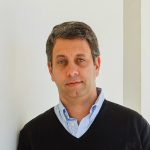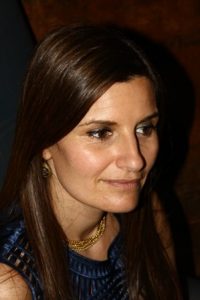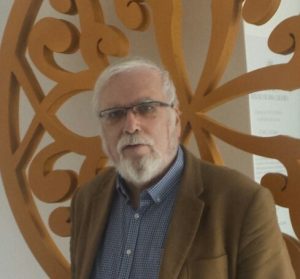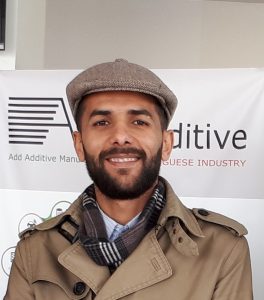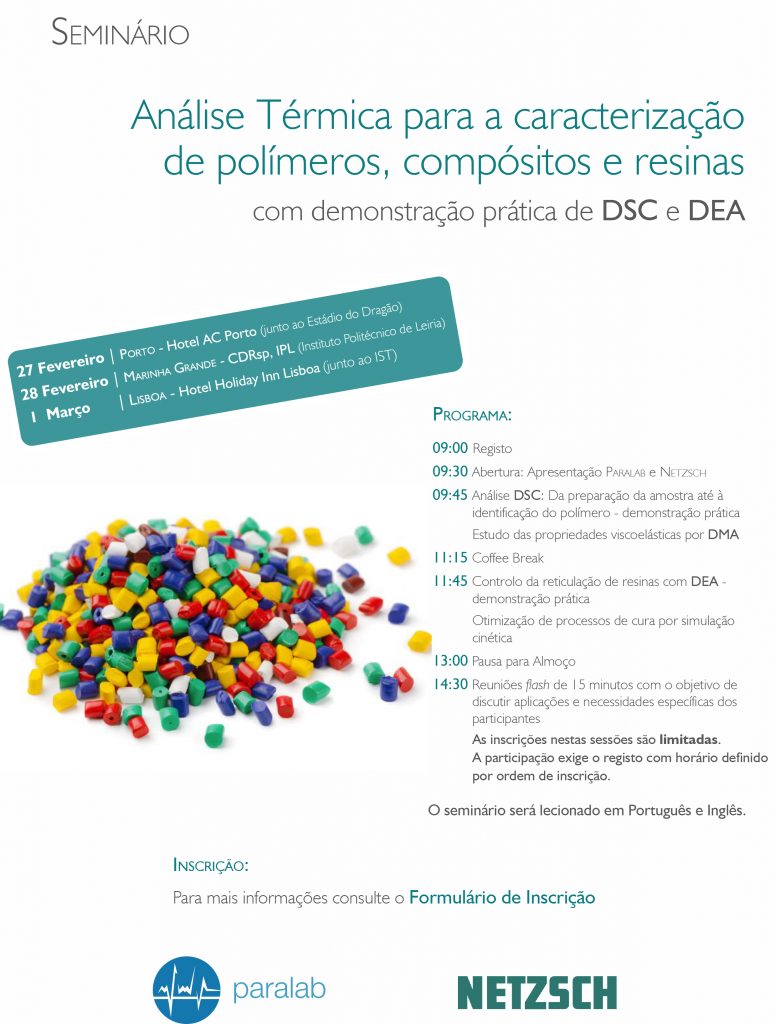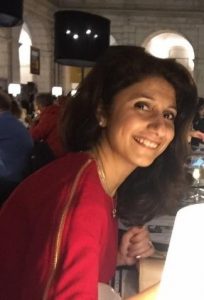Seminar | Medical Imaging in the diagnosis of breast cancer | September 26, 2018 | 12:00h – 12:45h
Biography:
Nuno Matela| Assistant Professor of the Department of Physics of FCUL | Faculdade de Ciências da Universidade de Lisboa (FCUL), Portugal
Nuno Matela graduated in Physics Engineering from the Instituto Superior Técnico in 2002. Following this, Nuno Matela completed the first year of the Doctoral Program in Biophysics at the Faculdade de Ciências da Universidade de Lisboa (FCUL) and completed his PhD degree in Biomedical Engineering and Biophysics in the same university in 2008. During his PhD, he worked on the development of iterative image reconstruction algorithms for a dual planar detector for positron emission mammography, integrated in an international project which led to the construction of two prototypes for imaging the breast with nuclear medicine techniques.
Nuno Matela is currently Assistant Professor of the Department of Physics of FCUL, teaching courses of the Integrated Master in Biomedical Engineering and Biophysics teaching courses related with medical imaging and physics.
Nuno Matela’s main research interests are medical imaging, especially applications to breast cancer diagnosis. He is interested in Digital Breast Tomosynthesis, X-ray mammography, nuclear medicine imaging, image processing and reconstruction, lesion classification and GPU programming. His talk will be focused in these research topics.
Seminar | qPET: A distributed non-invasive system for quantification in PET | July 19, 2018 | 12:00h – 12:45h
Biography:
Francisco José Amado Caramelo | Instituto de Ciências Nucleares Aplicadas à Saude | ICNAS. Universidade de Coimbra, Portugal
Francisco José Amado Caramelo é licenciado em Engenharia Física pela Faculdade de Ciências e Tecnologia da Universidade de Coimbra desde 1993 e Mestre em Engenharia Biomédica pela Faculdade de Medicina da Universidade de Coimbra desde 1998. Doutorou-se em Ciências Biomédicas em 2009 na Universidade de Coimbra. É docente da Faculdade de Medicina da Universidade de Coimbra desde 2001 e presentemente é Professor Auxiliar na mesma leccionando diversas unidades curriculares, nomeadamente Biofísica e Bioestatística em que é regente. É co-fundador das empresas Sarkkis, Lda e Spiral Data, Lda.
Nuno Chichorro Ferreira | Instituto de Investigação Clínica e Biomédica de Coimbra (ICBR) – Faculdade de Medicina, Universidade de Coimbra, Portugal
Nuno Chichorro Ferreira é Professor Auxiliar na Faculdade de Medicina da Universidade de Coimbra. Colabora e faz parte do Conselho Científico do ICNAS (Centro de PET da Universidade de Coimbra). Ensina as seguintes disciplinas na universidade de Coimbra: Biofísica e Medicina Fisica (Mestrado Integrado de Medicina Dentária), Análise e Processamento de Imagem (Mestrado Integrado de Engenharia Biomédica, Mestrado Integrado de Engenharia Física, Mestrado de Especialização em Astrofísica e Instrumentação para o Espaço), Bioestatística (Mestrados Integrados em Medicina e Medicina Dentária) e lecciona/colabora em outras disciplinas relacionadas com imagem médica. A investigação foca-se na optimização da aquisição de dados e de métodos de processamento para imagem médica, nomeadamente em Tomografia de Emissão com Positrões (PET). Ela inclui o desenvolvimento de técnicas de correcção de dados para PET e o desenvolvimento de algoritmos iterativos de reconstrução de imagem.
Seminar | The Potential of Silk Biomaterials in Tissue Regeneration | May 18, 2018 | 12:00h – 12:45h
Tissue engineering (TE) is an interdisciplinary field which has gained relevance as a valuable strategy in regenerative medicine. Remodeling and regeneration requires a matrix that mimics the human body biological environment, acting as support for nutrients and water diffusion, vascularization and cell proliferation1. Among the several strategies that have been proposed to prepare polymeric scaffolds for tissue regeneration, fiber-based structures are particularly interesting as they present higher porosity, interconnectivity and surface area, which can facilitate cellular attachment and consequently improve scaffold cell colonization and new tissue formation2. In this sense, textile technologies are considered as potential routes for the production of very precise constructs for TE applications, as they can present superior control over design, manufacturing and reproducibility. Knitted textile technologies are particularly useful for the fabrication of 3D architectures with better extensibility and higher porosity/volume as compared with woven techniques. The use of silk to fabricate such type of biotextiles has been associated with targeted functional microenvironments supporting tissue morphogenesis2. In fact, long standing FDA regulatory approval of silk as a suture, its abundance as raw fiber material and controlled proteolytic degradability in vitro and in vivo has established the ground for a range of tissue engineering applications, including bone, cartilage, tendon/ligament and skin regeneration.2,3 In this work are presented some examples of this enormous potential.
Biography:
Ana Leite Oliveira | Head of the Biomaterials and Biomedical Technology Laboratory| Centre for Biotechnology and Fine Chemistry, Portuguese Catholic University, Porto
Ana Leite Oliveira is the Head of the Biomaterials and Biomedical Technology Laboratory at the Centre for Biotechnology and Fine Chemistry (CBQF – Government Associated Laboratory), Portuguese Catholic University, Porto, Portugal. She is also Assistant Professor at the School of Biotechnology, Portuguese Catholic University, where she is responsible for the courses of Biomaterials taught to the Master of Biomedical Engineering and the Bachelors’ Degree in Bioengineering. She obtained her PhD in 2008, in collaboration with the company Depuy Orthopaedics, Inc. (Johnson & Johnson), Warsaw, IN, USA. Her research interests are natural-based biomaterials, in particular silk for tissue engineering applications; biotextiles; sterilization of sensitive products. From her work have resulted already 5 international patents and more than 60 publications (articles in international journals with peer review and book chapters). She has organized and participated in different international conferences and workshops where she has presented more than 80 communications, mostly oral communications and invited lectures. She has been involved in the preparation and coordination as PI of various national and international projects funded by several National/European agencies and private companies. Parallel to her research activity she is a referee for several international journals in the biomedical field and since 2008, she has been assisting the European Commission as an Expert (Evaluator, Reviewer) for the Research Executive Agency (REA) in the 7th Framework Programme, COST actions (European Cooperation in Science and Technology) and Horizon 2020.
Seminar | Toolbox for Scientists 1: Presentations | April 11, 2018 | 12:00h – 13:00h
This is the second in the series of workshop to help all members of CDRSP develop the essential skills required of Scientists.
In 1 we discussed Publication, in 2 we move on to Presentations whether informal, formal, large conference or small group, our lives are made up of a series of presentations.
This workshop will discuss the key elements to making an effective presentation – there will be something for everyone.
Biography:
Geoffrey Mitchell | Vice-Director | CDRSP-IPLeiria, Portugal
Geoffrey Mitchell is a Vice-Director of the Centre for Rapid and Sustainable Product Development, a Coordinator Investigator at the Polytechnic Institute of Leiria and Emeritus Professor at the University of Reading UK. He is the Director of the Masters Course in Direct Digital Manufacturing at the School of Technology and Management of the Polytechnic Institute of Leiria.
He is/was supervisor/co-supervisor of fifty PhD and forty MSc Students.
Geoffrey Mitchell received a first degree in Metallurgy from the City of London Polytechnic, an MSc in Physical Research Technigues and a PhD degree in Polymer Physics from the CNNA/Uninversity of Cambridge.
He has authored and edited fifteen books, authored and co-authored forty-two Book Chapters and over three hundred papers published in international journals, international conferences and six patents. My ´H´index is 37 see E. Hirsch Proc Nat Acad Sci 102 (46): 16569-16572 2005. In 2016 with Paula Faria he launched the ´CDRSP Knowledge Series´ of books to provide dissemination of CDRSP activities to industrialists.
Geoffrey Mitchell is a member of the Editorial Board of “High Performance Polymers”( ISSN: 09540083); “International Journal of Polymer Science” ISSN: 1687-9422 (Print); “International Journal of Physical Science Science” ISSN: 1992-1950; “Current research in biopolymers”; I am editor-in-chief ‘Advances in Chemical and Biological Engineering’. I am also a review and adjudicate for many high profile international journals including Nature, Macromolecules, Polymer, Polymer Testing, Macromolecular Materials and Engineering etc
Geoffrey is a regular reviewer of for international and national funding agencies, including Poland (National Science Centre), Portugal (FCT), EU, MERANET, Australia, Singapore, UK(EPSRC) and in 2017 served as Chair of the Materials Panel for EPSRC (UK).
He is involved in a broad range of research projects in materials, 3D/4D printing, in Additive Manufacturing, in neutron scattering and time-resolved x-ray scattering at Synchrotron Facilities as a PI (4) and Reserch Member (8).
Geoffrey Mitchell is Co-chair of the International Conference on Advanced Research in Sustainable and Intelligent Manufacturing (RESIM), International Conference on Direct Digital Manufacturing and Polymers (ICDDMAP) and International Conference Series on Electrospinning.
His research interests are focused on materials, especially molecular materials, smart and functional materials, the use of neutron and x-raay scattering coupled to computational modelling, new technologies for additive manufacturing including 3D/4D printing, programmable moulds, biopolymers and sustainability, mitigating climate change, Biomedical Engineering, Manufacturing/Bio-Manufacturing, and Tissue Engineering.
Seminar | Green thermosets: Nanocomposites of Rosin/Maghnite (PT-DZ/0001-2015) | April 4, 2018 | 12:00h
Fields: Nanosciences and Nanotechnology (engineering, Chemistry, Materials Science)
Affiliation of the team 2 related to the project: both preparing PHD in the field of green chemistry in the laboratory of polymer chemistry (LCP) associated with the University of Oran 1 Ahmed Ben Bella (Oran-Algeria).
Summary of the work: The work that has been done in these last 3 months involved both the chemical modification of the Algerian nanoclay by an acid and organophilic treatment and also the linking of the Rosin with polylimonene in order to synthesize copolymers- nanocomposites/ clay, in order to extract a green material from a green raw material (limonene, Rosin and clay) and to enhance the properties of the rosin and to make them more suitable for the preparation of the nanocomposites linked-rosin/nanoclay. FT-IR analysis confirmed the efficient linkage of the rosin with the polylimonene. The TGA analysis showed a significant improvement in the thermal properties with a way higher thermal degradation temperature in the case of the linked compounds. Further investigation will be done for the potential applications.
The second part is the preparation of Rosin composites using organophylic clay (Maghnite-CTAB), and also we added the Polyethylene Glycol Dimethacrylate (PEGDM). PEGDM was mixed, at T>120ᵒC, with Rosin/Maghnite-CTAB, and (UV) was used as Photo-initiator to produce crosslinking of C=C bonds of methacrylic end groups, PEGDM and Rosin Crosslinking.
Biography:
Sarra HAOUE:
I am a 26 Years old phd scholar since 2015 under the supervision of professor BELBACHIR Mohammed at the laboratory of polymer chemistry in Oran-Algeria. I performed Master degrees, Pharmaceutical chemistry in 2014 from the university of Oran-Algeria (USTO). My thesis work focuses on the preparation of macromonomers based on PEG and functionalized PEG with Anydride and also PEG/Clay based nanocomposites.
Hodhaifa DERDAR:
I am a 27 Years old phd scholar since 2015 under the supervision of professor BELBACHIR Mohammed at the laboratory of polymer chemistry in Oran-Algeria. I obtained a Master degrees, spectral analyzes in chemistry in 2014 from the university of Mostaganem-Algeria. My thesis main research work focuses on the preparation of Green polymers, polyterpenes (polylimonene and copolymers) also polylimonene based nanocomposites.
Seminar | Moldex3D_Innovation Technology of Injection Molding simulation | April 3, 2018 | 11:00h – 12:30h
Injection molding is a manufacturing process widely used for producing plastic parts. With the application of plastic materials on the rise in almost every industry, combined with growing pressure of costs reduction and time to market, the need for simulation tools has been greater to provide deep insight into the process.
Moldex3D is dedicated to provide the comprehensive features of simulation easily integrating into each phase from product design to production, which helps to solve challenging issues of plastic injection molding in a fast, accurate and innovate approach.
Biography:
Vincent HUNG | Regional Manager | Moldex3D EMEA
Education
National Taiwan University, Master’s of Mechanical Engineering
Experience
Regional Manager, Moldex3D EMEA
Technical Manager, Moldex3D Europe
Senior Engineer, Moldex3D Europe
Senior Mechanical Engineer, AU Optronics Corp. NB Applications
Seminar | Toolbox for Scientists 1: The Publication Process and Momentum in Scientific Research | March 14, 2018 | 12:00h
A core activity for any researcher is the process of disseminating the results of their research work. This seminar will address the issues of where and how to present the results.
What are the responsibilities of authors, the corresponding author, the editors, the referees?
Biography:
Geoffrey Mitchell | Vice-Director | CDRSP-IPLeiria, Portugal
Geoffrey Mitchell is a Vice-Director of the Centre for Rapid and Sustainable Product Development, a Coordinator Investigator at the Polytechnic Institute of Leiria and Emeritus Professor at the University of Reading UK. He is the Director of the Masters Course in Direct Digital Manufacturing at the School of Technology and Management of the Polytechnic Institute of Leiria.
He is/was supervisor/co-supervisor of fifty PhD and forty MSc Students.
Geoffrey Mitchell received a first degree in Metallurgy from the City of London Polytechnic, an MSc in Physical Research Technigues and a PhD degree in Polymer Physics from the CNNA/Uninversity of Cambridge.
He has authored and edited fifteen books, authored and co-authored forty-two Book Chapters and over three hundred papers published in international journals, international conferences and six patents. My ´H´index is 37 see E. Hirsch Proc Nat Acad Sci 102 (46): 16569-16572 2005. In 2016 with Paula Faria he launched the ´CDRSP Knowledge Series´ of books to provide dissemination of CDRSP activities to industrialists.
Geoffrey Mitchell is a member of the Editorial Board of “High Performance Polymers”( ISSN: 09540083); “International Journal of Polymer Science” ISSN: 1687-9422 (Print); “International Journal of Physical Science Science” ISSN: 1992-1950; “Current research in biopolymers”; I am editor-in-chief ‘Advances in Chemical and Biological Engineering’. I am also a review and adjudicate for many high profile international journals including Nature, Macromolecules, Polymer, Polymer Testing, Macromolecular Materials and Engineering etc
Geoffrey is a regular reviewer of for international and national funding agencies, including Poland (National Science Centre), Portugal (FCT), EU, MERANET, Australia, Singapore, UK(EPSRC) and in 2017 served as Chair of the Materials Panel for EPSRC (UK).
He is involved in a broad range of research projects in materials, 3D/4D printing, in Additive Manufacturing, in neutron scattering and time-resolved x-ray scattering at Synchrotron Facilities as a PI (4) and Reserch Member (8).
Geoffrey Mitchell is Co-chair of the International Conference on Advanced Research in Sustainable and Intelligent Manufacturing (RESIM), International Conference on Direct Digital Manufacturing and Polymers (ICDDMAP) and International Conference Series on Electrospinning.
His research interests are focused on materials, especially molecular materials, smart and functional materials, the use of neutron and x-raay scattering coupled to computational modelling, new technologies for additive manufacturing including 3D/4D printing, programmable moulds, biopolymers and sustainability, mitigating climate change, Biomedical Engineering, Manufacturing/Bio-Manufacturing, and Tissue Engineering.
Seminar | Thermal Analysis for characterization of polymers, composites and resins | with practical demonstration of DCS and DEA | February 28, 2018 | Starts at 9am
Sign up here
Seminar | Biomaterials and Biomechanics: applications in the World of Orthopaedics | February 21, 2018 | 12:00h
- The role of biomaterials in orthopaedic applications and their relation to implant fixation and success.
- The effects of osteoporosis on bone mechanics.
This seminar has the support from the European Regional Development Fund (FEDER), through COMPETE2020 under the PT2020 program (POCI-01-0145-FEDER-023423), and by the Portuguese Foundation for Science and Technology (UID/Multi/04044/2013 and PTDC/EMS-SIS/7032/2014).
Biography:
Saba Abdulghani Oliveira da Silva | Researcher | CDRSP-IPLeiria, Portugal
Saba Abdulghani Oliveira da Silva, is a researcher at the Centre for Rapid and Sustainable Product Development at the Polytechnic Institute Leiria (IPL). Saba carried out her Bachelor of Engineering degree (B.Eng) and Doctorate degree (PhD) at the Materials Department of Queen Mary University of London in Biomaterials under the supervision of Professor K.E. Tanner. Following her PhD, Saba was awarded a Marie Curie Intra-European Post-Doctoral Fellowship to work on the Biomechanics of cemented hip prostheses at the Biomaterials and Biomechanics Laboratory, Lund University Hospital, Sweden under the supervision of Professor Lars Lidgren. In 2008, Saba moved to Portugal to work at the Rheumatology research unit, Instituto de Medicina Molecular (IMM) on the mechanical properties of osteoporotic bone, for which she won a research award from the European Calcified Tissue Society (ECTS/ Servier International Award 2010). Saba´s research experience covers orthopaedic biomaterials and biomechanics as well as the mechanics of healthy and diseased bone. She has her work published in international journals and has presented her work at international conferences all over the world and is a reviewer for a number of International journals. Her current research interests are biomaterials for 3D biofabrication in relation to bone defects and diseases.
Seminar | Geometry and Topology Laboratory Workshop| January 10, 2018 | 12:00h
10:00–10:30 Nelson Martins-Ferreira, “On a generic procedure for computing the off-set of an arbitrary region in the plane”
Precis: A solution to the problem of determining the generalized offset for an arbitrary reagion in the plane is presented and extended to the more general context of digraphs and linking structures.
10:45–11:15 Pedro Castelo, “Riemannian manifolds and minkowski spacetime”
Precis: In the context of General Relativity It is shortly presented a possible solution for the description of local point-like masses in the expanding Universe.
Biography:
N. Martins Ferreira | Researcher | CDRSP-IPLeiria, Portugal
N. Martins-Ferreira has a degree in Applied Mathematics and Computation (1998), a master’s degree in Mathematics – Geometry and Combinatorics (2002), both from the University of Aveiro, Portugal, and a Ph.D in Pure Mathematics (2008) from the University of Cape Town, South Africa. Since October 2008, he is a pos-doc student at CMUC, University of Coimbra, under the FCT grant: SFRH/BPD/43216/2008.
Pedro Ferreira | Researcher | CDRSP-IPLeiria, Portugal
Pedro is a Postdoc at CDRsp. He has a pre-bolonha five year degree in Engineering and Physics (1997, Instituto Superior Técnico) and a D.Phil in Theoretical Physics (2001, University of Oxford).
He has published about 20 papers in the subjects of Material Physics, Tissue Engineering, General Relativity, Quantum Field Theory, Mathematical Physics and String Theory.
